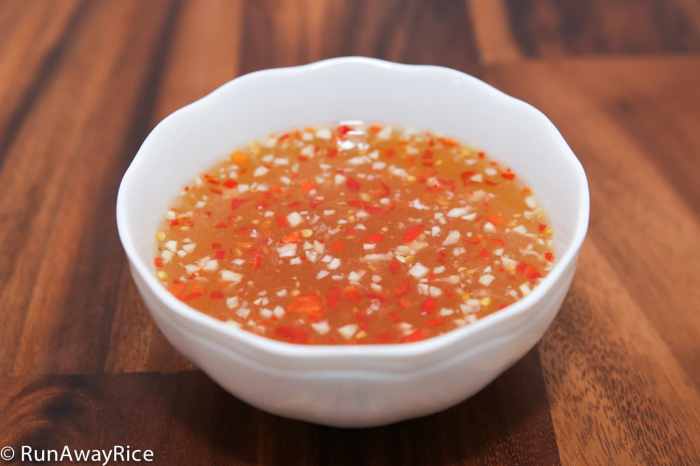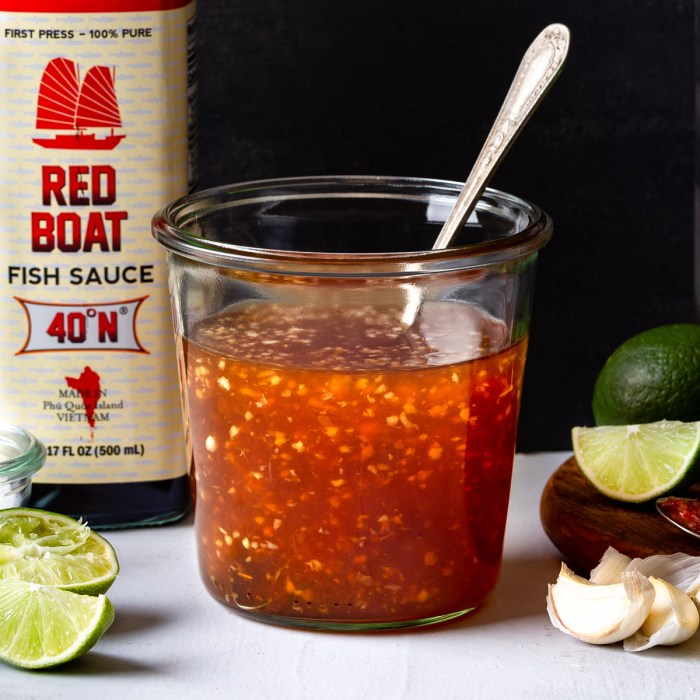Sauce for Fish Recipe A Culinary Guide
Understanding Fish Sauces: Sauce For Fish Recipe
Sauce for fish recipe – Fish sauce, a staple in numerous cuisines worldwide, boasts a rich history and diverse applications. Its unique umami flavor profile stems from the fermentation process, resulting in a complex taste that enhances a wide array of dishes. This exploration delves into the various types, recipes, and culinary uses of fish sauce, providing a comprehensive guide for both novice and experienced cooks.
A History and Cultural Significance of Fish Sauces
Fish sauces have been integral to culinary traditions for millennia. Evidence suggests its use dates back to ancient civilizations in Southeast Asia, where it served as a primary seasoning and preservative. In Vietnam, nước mắm (fish sauce) holds a central position in the national cuisine, similarly, patis in the Philippines and nam pla in Thailand are indispensable ingredients.
The Mediterranean region also boasts a long history with its own versions of fermented fish sauces, showcasing the global reach and enduring appeal of this condiment.
Diverse Flavors and Textures of Fish Sauces, Sauce for fish recipe
The flavor and texture of fish sauce are heavily influenced by the type of fish used, fermentation time, and production methods. Light-colored sauces tend to have a milder, sweeter taste, while darker varieties possess a more intense, pungent flavor. The texture can range from thin and watery to thick and syrupy. The use of different fish, such as anchovies, sardines, or mackerel, contributes to variations in aroma and taste, creating a wide spectrum of flavor profiles.
Common Ingredients in Fish Sauce Recipes
While the core ingredient is fermented fish, variations exist. Salt plays a crucial role in the fermentation process, preserving the fish and contributing to the sauce’s salty taste. Sometimes, additional ingredients like sugar or spices are added to modify the flavor profile, creating a complex taste.
Types of Fish Sauces: Fermented vs. Non-Fermented
The primary distinction lies between fermented and non-fermented fish sauces. Fermented sauces, such as nước mắm and Thai fish sauce, undergo a lengthy fermentation process, typically lasting months or even years, resulting in a complex, umami-rich flavor. Non-fermented options, while less common, often involve a simpler process of cooking and reducing fish with salt, yielding a less intense flavor.
Regional Variations in Fish Sauce Flavor Profiles
Southeast Asian fish sauces, like nước mắm from Vietnam and nam pla from Thailand, generally feature a strong, salty, and umami taste, often with subtle hints of sweetness. Mediterranean fish sauces, on the other hand, may exhibit a more briny, less intensely salty profile. These variations are influenced by the types of fish used, climate, and traditional production techniques.
Influence of Fish Type on Fish Sauce Flavor
The type of fish used significantly impacts the final product. Oily fish, such as sardines or anchovies, produce a richer, more intense flavor, while leaner fish, like white fish, result in a milder taste. The fat content of the fish contributes to the overall mouthfeel and depth of flavor in the finished sauce.
Basic Fish Sauce Recipes
These recipes offer a starting point for experimenting with fish sauce. Remember to adjust saltiness according to preference.
| Recipe Name | Main Ingredients | Preparation Steps | Serving Suggestions |
|---|---|---|---|
| Simple White Fish Sauce | White fish fillets, salt, water | Simmer fish and salt in water until fish dissolves. Strain and cool. | Dipping sauce for vegetables, seasoning for soups |
| Basic Anchovy Sauce | Anchovies, salt, sugar | Blend anchovies, salt, and sugar. Let it sit for a few days. Strain for a smoother consistency. | Marinade for meats, addition to stir-fries |
| Quick Sardine Sauce | Sardines, salt, water, peppercorns | Simmer sardines, salt, water, and peppercorns until sardines break down. Strain and cool. | Flavor enhancer for pasta dishes, salad dressing |
Adjusting Saltiness and Flavor Intensity
Start with a small amount of fish sauce and taste as you go. To reduce saltiness, dilute with water or add a touch of sweetness with sugar or honey. To intensify flavor, use a higher quality fish sauce or add complementary ingredients such as garlic, ginger, or chili.
Advanced Fish Sauce Recipes
These recipes demonstrate the versatility of fish sauce in creating complex flavor profiles.
Spicy Fish Sauce Glaze
- Ingredients: Fish sauce, rice vinegar, brown sugar, chili garlic sauce, ginger, garlic
- Preparation: Combine all ingredients in a saucepan and simmer until thickened.
Sweet and Sour Fish Sauce Marinade

Source: runawayrice.com
- Ingredients: Fish sauce, lime juice, honey, soy sauce, garlic, shallots
- Preparation: Whisk together all ingredients until well combined.
Fish Sauce Applications Beyond Seasoning
Fish sauce transcends its role as a simple seasoning. Its umami depth elevates various culinary applications.
Fish Sauce as a Marinade, Glaze, and Dipping Sauce

Source: sunset02.com
Its savory profile makes it an excellent marinade for meats and seafood, adding a depth of flavor before grilling, baking, or frying. As a glaze, it imparts a rich, glossy finish to roasted vegetables or grilled meats. Its versatility extends to dipping sauces, pairing well with spring rolls, dumplings, or fresh vegetables.
Enhancing Flavor Across Cooking Methods
Whether grilling, baking, or frying, a dash of fish sauce can significantly enhance the taste of dishes. In grilling, it adds a savory depth to meats and seafood. In baking, it complements savory pies and quiches. When frying, it enhances the flavor of stir-fries and other pan-fried dishes.
Dishes Where Fish Sauce Plays a Crucial Role
Numerous dishes rely on fish sauce to create their signature taste. Vietnamese pho, Thai green curry, and Filipino sinigang all use fish sauce to achieve their unique flavor profiles. It’s an essential ingredient in many Asian cuisines.
Visual Guide to Fish Sauces
The appearance of fish sauce varies greatly depending on the type and ingredients. Fermented sauces often range in color from light amber to dark brown, reflecting the length of fermentation. The texture can range from a thin, clear liquid to a thicker, slightly viscous consistency. The aroma can be pungent, salty, and sometimes sweet, depending on the type of fish and production methods.
Appearance and Aroma Description
Imagine a rich, dark amber liquid with a subtle shimmer. The aroma is a complex blend of saltiness, a hint of sweetness, and the distinctive, savory tang of fermented fish, promising a depth of flavor that will transform any dish.
Storage and Shelf Life of Fish Sauces

Source: tamingofthespoon.com
Proper storage is vital to maintaining the quality and flavor of fish sauce. Store commercially produced fish sauce in a cool, dark place, away from direct sunlight and heat. Homemade fish sauces should be refrigerated after preparation. Refrigerated homemade fish sauce generally lasts for several weeks, while commercially produced varieties have a longer shelf life, often indicated on the packaging.
Finding the perfect sauce for fish can be a culinary adventure. While a classic beurre blanc is delightful, sometimes you crave a contrasting sweetness. For a unique twist, consider incorporating elements from a recipe homemade cranberry sauce , perhaps using the zest and a touch of the sauce itself to create a surprisingly delicious and tangy glaze for your fish.
The resulting flavor profile offers a sophisticated balance to the delicate taste of the fish.
Spoiled fish sauce will often exhibit a cloudy appearance, an off-putting odor, and a sour taste.
Expert Answers
Can I substitute fish sauce in a recipe?
While there’s no perfect substitute, soy sauce or Worcestershire sauce can offer a similar salty umami flavor, but the results may differ significantly. Adjust the amount carefully.
How long does homemade fish sauce last?
Properly stored in a cool, dark place, homemade fish sauce can last for several months. Always check for signs of spoilage before using.
What type of fish is best for making fish sauce?
Anchovies are commonly used for their strong, savory flavor, but other small, oily fish can also be used.
Is fish sauce gluten-free?
Yes, naturally fermented fish sauce is generally gluten-free.












